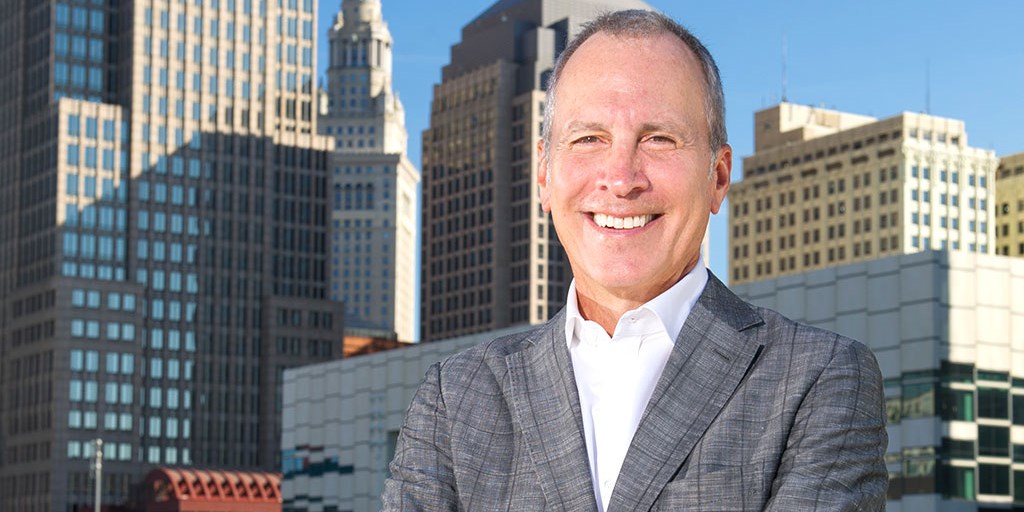Lee Zapis has invested in more than 20 companies since 2003, but he knows it takes more than just capital to build an outstanding business. That’s why Zapis Capital Group prefers to take an active role in its portfolio companies, providing strategic advice and resources in addition to equity investments.
“Our ideal investment is backing a business development professional that has identified a solution to a problem in their industry, but needs a partner to help them achieve their vision,” says Zapis, who focuses on early/seed stage technology companies. “I prefer to find ones that we can really help add value to, besides just writing a check.”
Zapis spoke with Smart Business Dealmakers to share his keys for dealmaking, his outlook on Northeast Ohio’s capital market and his advice for entrepreneurs and executives who are trying to raise capital.
How would you describe the capital market in Northeast Ohio today?
Everyone complains that there’s not enough early/seed stage money for startups. We have groups like Flashstarts, North Coast Angel Fund and JumpStart that do a lot for early-stage companies, but there’s not a lot of money out there for people who have an idea and have spent some time and effort and their own money to develop that idea.
What challenges do you see for investors in 2018?
I like to think of myself as an optimist, but I see storm clouds on the horizon. We’re in the eighth year of economic expansion. One of these days, it’s going to go south, and I think there’ll be more opportunities for us when that happens, because valuations will come down and we’ll be in a better position. We have the luxury of being patient because we only invest our own money and don’t have to worry about limited partners or specific time horizons for an exit.
What’s your advice for entrepreneurs and executives trying to raise capital in this environment?
Talk to as many potential investors as possible. The more people you talk to, the better your chances of finding the right investment partner that you’re comfortable with, that can bring value to you.
It’s like buying a house: The more houses you look at, the more you find what you like and don’t like. You develop a sense of what’s important to certain investors. Not every investor is going to line up with your needs or your vision.
For the most part, people in Northeast Ohio are very willing to give advice. So, if there’s a deal I see that really doesn’t fit our criteria, but I know somebody who it would, I’m happy to make those introductions because the more success there is in Northeast Ohio, the better it is for everyone.
What drives your approach to dealmaking?
The three most important things when it comes to dealmaking are people, people and people. I have to like the entrepreneurs and enjoy being in their company before I’ll consider investing in their venture. A lot of it is an intuitive gut feeling; some people you connect with and other people, for whatever reason, there’s not that connection, so you just have to spend time with them, getting to know them, learning about their background, what drives them and what motivates them.
Ron Cohen, the founder of the accounting firm, Cohen & Co., told me several years ago, ‘Life’s too short to work with a--holes.’ That's become my mantra. Somebody might have the greatest idea ever, it could be a billion-dollar business, but if that guy’s a jerk, it’s not worth it.
The times when (deals haven’t) worked for me was when I ignored the people equation and fell in love with the idea and thought, ‘Oh, we can fix the people.’ No, you can’t fix the people. You might alter the business idea, but you’re not going to fix the people.
What do you know now, through experience, that you wish you would have known when you made your first deal?
I wish I’d had a larger network of experts to work with back then. The more smart people you can lean on and call on for their insight and vision, the better. Obviously, the older you get, the more people you come in contact with, the broader your network gets. Of course, tools and technologies today like LinkedIn have helped.
Trying to expand that network is important for everyone. I like to have a network that is pretty broad and diverse in the sense that there’s people I know from a lot of different industries, from the media business which I spent most of my career in, to the music industry, to early-stage technology startups and software. I think the broader and more diverse your network, the more valuable it becomes.
How to reach: Zapis Capital, www.zapiscapital.com




